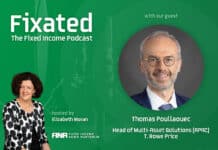
Comments from Erik Weisman, Chief Economist and Portfolio Manager, MFS Investment Management
There are three major considerations that impose a challenge to the Fed this month.
First, it looks to me like economic activity is slowing. There are signs of weakening in the hard data.
Second, things that rhyme with inflation look stickier. We saw this in the Employment Cost Index on Friday last week, in the revision to the core PCE inflation for this year’s first quarter, and then in the University of Michigan’s inflation expectations.
And third, First Republic has now been put in receivership.
These three countervailing forces will require a delicate and fraught balancing act from the Fed. If it were only the teetering of First Republic and waning economic activity, the Fed would be cutting. But, with inflation clearly stated as the number one priority, the Fed cannot even hint that easing is close at hand. As such, the Fed will continue to raise the policy rate on Wednesday.
Also read: Another US Bank Fails
If the Fed keeps going, it signals the economy is still too hot to bring inflation down—and we really don’t know if that is the case, because of lags from tightening to subsequent economic weakening. The downside is that these last few incremental rate increases may do more damage when an eventual recession comes. For example, we’ve seen over time that when labour rolls over, it happens fast. We see weakening labor but not weak enough right now to anticipate it is about roll over. We are left asking ‘what if…’.
I will be looking for anything that would give us reason to strongly believe that the Fed is done with hiking, or any implicit guidance that they would be on hold for a long while such that the markets will truly believe it. Regardless of what is going to be said on Wednesday, I struggle to see how the markets would think that the Fed is definitely done with its hiking cycle.
A lack of clear signals is the problem I have with Powell. Powell is on one hand this and on the other that; I find it quite amusing that he is not an economist, but he talks like one. Interestingly, Greenspan, Bernanke and Yellen were all economists, but they didn’t equivocate nearly as much as Powell, a lawyer. Generally, when his predecessors were asked a question, unlike Powell, they would give you the answer that they wanted you to have. The message I have for Powell is that now it is not the right time to be wishy-washy.
The Fed wants to rely on data and be anticipatory at the same time. We’re not sure it can be, especially given the speed with which this business cycle has evolved. In any event, you would have to suspend your disbelief to believe that this cycle is not going to result in more turmoil.






























